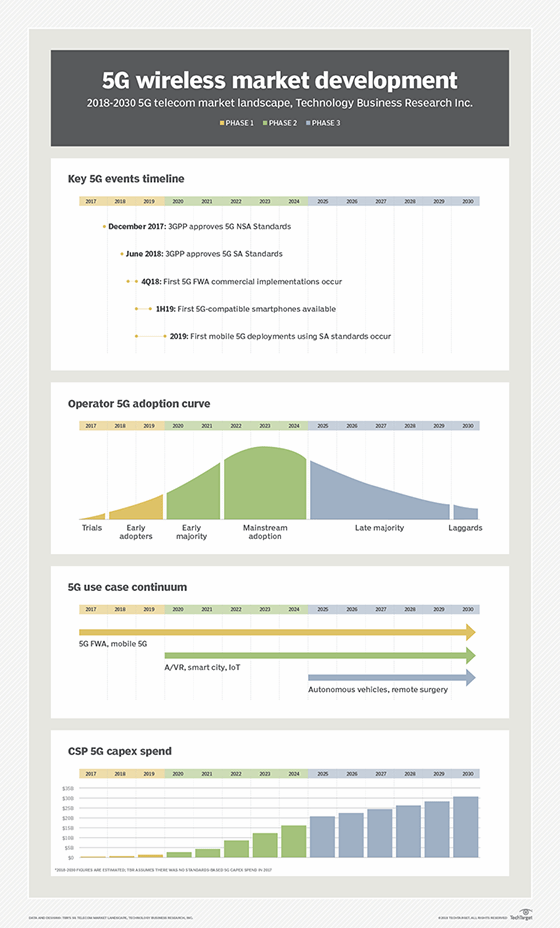
Fotolia
Cisco, Samsung finish 5G trial for home, IoT applications
Cisco, Samsung and French carrier Orange have completed a successful 5G trial. The companies' fixed wireless network delivered HD video to homes and provided IoT services.
Cisco, Orange and Samsung have completed a successful trial of 5G-delivered home entertainment and smart city applications in Romania.
The three companies said this week they had been testing their fifth-generation (5G) fixed wireless system in Floresti, which is located in the Cluj district of Romania, for about six weeks. The 5G trial involved delivering high-speed broadband to homes and gathering data from sensors and cameras installed on streetlamps.
In the home-service trial, the three vendors delivered enough bandwidth for ultrahigh-definition video and virtual reality gaming. In the smart city 5G trial, the partners used 5G wireless technology to collect temperature and humidity data from sensors and to gather footage from cameras. A Samsung connectivity node established the 5G wireless connection necessary to transmit data from the streetlamp-mounted devices to the core network.
The companies used advanced 5G-enabled antenna technologies -- including massive multiple input, multiple output and beamforming -- to transmit data at a wireless speed of 1 Gbps at a distance over six-tenths of a mile.
"Thanks to this first successful test of 5G fixed wireless access in the 26 GHz band, Orange has been able to verify several use cases enabled by this technology," Arnaud Vamparys, senior vice president of microwaves and radio networks at Paris-based Orange, said in a statement.
The technology used in the trial included Samsung's 5G routers and radio access network, which provides wireless connectivity between a device and the core network. Also used in the test were Cisco gateways and Meraki Z3 Wi-Fi and MV21 cameras.

Cisco-Ericsson partnership
Cisco's work with Samsung is occurring as its 5G partnership with Ericsson has stalled due to financial troubles that have forced Ericsson to restructure its business. Ericsson said last year the companies would not meet the financial goals set when the partnership started in 2015.
Verizon is another carrier testing the viability of a fixed wireless 5G network. The U.S. carrier is running 5G trials of its system in 11 major metropolitan areas. AT&T, on the other hand, is testing the delivery of mobile 5G over the millimeter wave (mmWave) band in four U.S. cities
MmWave allows for data rates up to 10 Gbps, which comfortably accommodates carriers' plans for cellular 5G. But before service providers can use the technology, they have to surmount its limitations in signal distance and in traveling through obstacles, like buildings.
AT&T, Orange, Verizon and other carriers are spending billions of dollars to develop 5G wireless networks for business, consumer and internet-of-things applications. Analysts expect service providers to start rolling out commercial 5G networks at the end of this year or in 2019.





